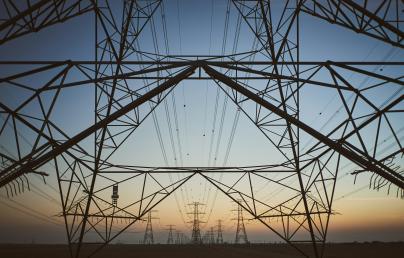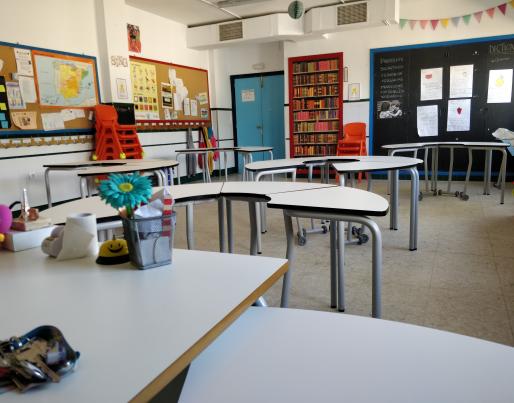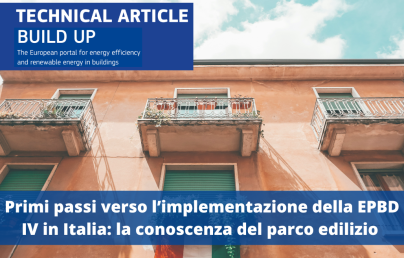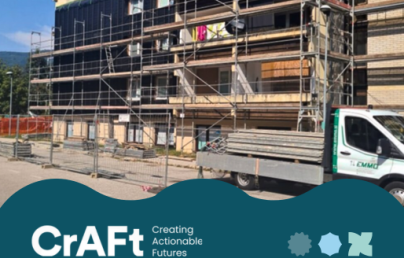
Evaporative Cooling to improve thermal conditions and IAQ in Spanish schools

Evaporative Cooling to improve thermal conditions and IAQ in Spanish schools
The Goverment of Andalucía has started a massive renovation project of its schools to improve the thermal conditions and ensure at the adoption of energy efficient solutions.
The air conditioning solution that responded to the criteria set is evaporative cooling, as it can improve temperatures not using chemical refrigerants to cool the air, using 100% fresh outside air and ensuring up to 90% reduction in Carbon Emissions.
The Goverment of Andalucía has started in 2020 the great renovation project of their schools.
It all officially started on 13th July 2020, when Law 1/2020 was approved by the Parliament of Andalucía, with the declared goal of improving "the thermal and environmental conditions of Andalusian public educational centres, through the development of certain actions that contain the application of evaporative cooling techniques and renewable energies, in coherence with the objectives of quality in teaching, labour regulations and adaptation to the criteria of environmental sustainability established by Andalusian state and European legislation."
Further to the approval of this law, related regulations and discussions, test installations with different models of evaporative air conditioners have been conducted.
Finally, in 2022 numerous installations have already been put out to tender and in September many schools are about to be re-opened with a cooling solution to improve thermal comfort, ensure a healthy learning (and working) environment and at the same time reduce greenhouse gases.
Climate change & sustainable cooling
Climate Change is heavily affecting Spain, which is becoming hotter, drier and more flammable. For every degree of global warming, Spain’s climate warms by 1.5℃. The temperature increase is therefore affecting habitability conditions inside buildings. This is even more worrying in public buildings hosting pupils and children.
To this we must add that most of the schools were built at a time when efficiency and energy savings were not a priority and building techniques were far from current standards. Air conditioning itself was not a priority, but now that Spring temperatures are similar to Summer temperatures of several decades ago, it is certainly a must to be considered.
This transition needs to be done considering its impact on the environment. Spain is expected to reach 2℃ of warming within the next 20 years unless immediate and severe cuts are made to global greenhouse gas emissions. In the worst-case emissions scenario, this warming could reach 4℃ by the end of the 21st century.
Evaporative cooling
For all these reasons, evaporative cooling has been the selected technology for the adoption in Andalusian schools. Evaporative cooling (or air conditioning) is the use of the natural process of cooling by water evaporation combined with continuous ventilation. Cold air is achieved because the outside air is forced to pass through filters saturated with water; that hot air forces water to evaporate and what we obtain is cooled, fresh, clean filtered air. All this is achieved with very little energy cost, which is why carbon emissions to the outside are considerably reduced (up to 90%), as much less electricity is consumed compared with conventional air conditioning systems (by compressor).
Air can be cooled directly by water (thus increasing humidity of the air stream) or indirectly: in this case water and air supplied to the building do not get in contact directly and therefore no moisture is added to the air stream. In both cases air is never recirculated, ensuring increased Indoor Air Quality for the building where it is installed, through a continuous flow of outside air.
The advantages for students and school workers
The main goals of the European Community are about emissions reductions by 2023 and the use of clean energy. These objectives are largely achieved with evaporative cooling, only using water (the most natural refrigerant) to cool the air and reducing energy consumption by up to 90%.
Second, the perfect thermal conditions are around 26°C with relative humidity between 30-70%: this is again easily achievable with evaporative cooling, which can reach even lower temperatures, but not ideal for the students and workers wellbeing.
Moreover, Indoor Air Quality is ensured thanks to the constant outside air flow. Stale indoor air is never recirculated, germs are expelled and air is constantly renovated. Evaporative air conditioning provides forced ventilation which helps to immediately dissipate CO2 concentrations. Forced ventilation is the most recommended by the CSIC in its recent reports on indoor air quality, preferring this option to natural ventilation, which is not that effective.
Finally, evaporative cooling provides basic humidity that human body needs to prevent diseases such as asthma, dry nose and to prevent sick building syndrome.
The installation of approximately 400 schools will take place over two or three years and may involve the installation of some 4,000 direct or indirect evaporative units, improving students and workers wellbeing and positively impacting on the concentration ability and productivity.
Sources:
[1] Law 1/2020 of 13 July for the improvement of thermal and environmental conditions of the Andalusian educational centers by means of bioclimatic techniques and the use of renewable energy of the Andalusian Council.
[2] Directive (EU) 2018/2001 of 11 December related to the promotion of the use of energy proceeding from renewable sources.
[3] Informe de la Asociación Bioclimática ABECE para los centros de educación de Andalucía. “Bioclimatización, una forma de climatizar”
[4] Guía de Atecyr de recomendaciones de operación y mantenimiento de los sistemas de climatización y ventilación para edificios de uso no sanitario para la prevención del contagio por SARS CoV 2” date 19/05/20.
[5]Greenpeace 5 July 2023, the organisation’s Science Unit at the University of Exeter.

